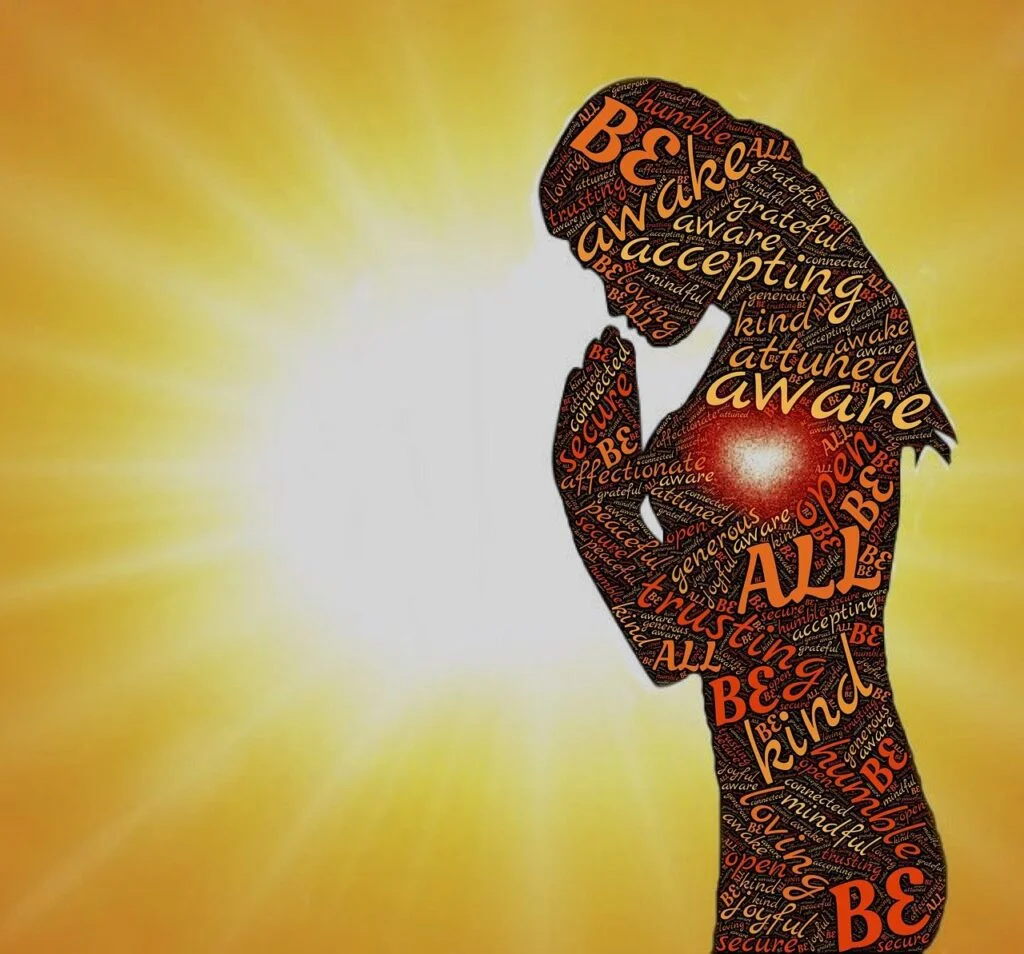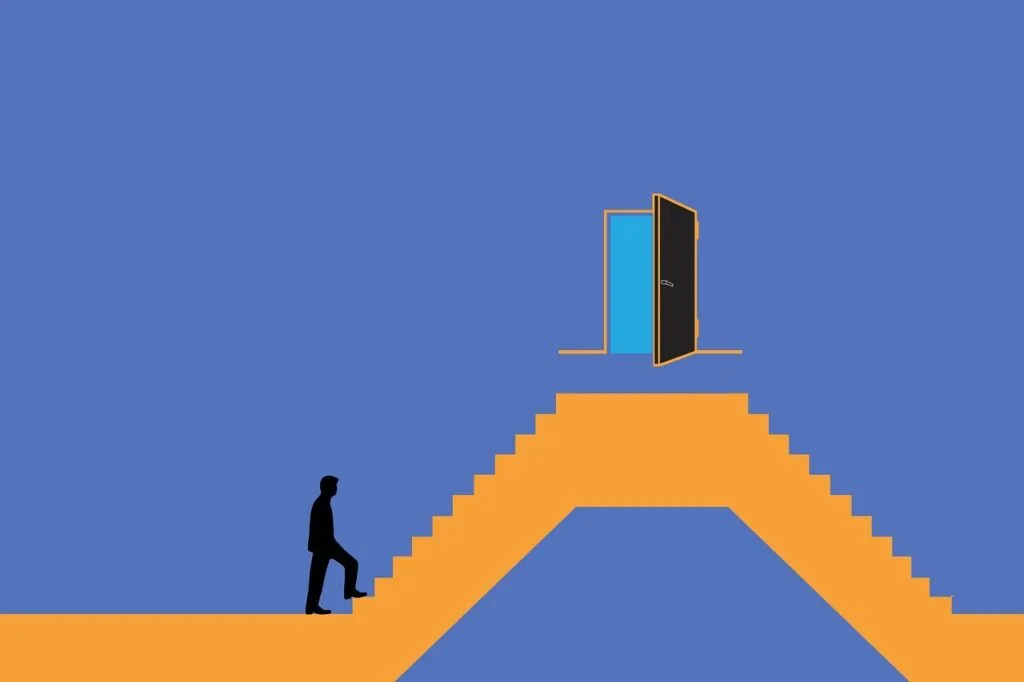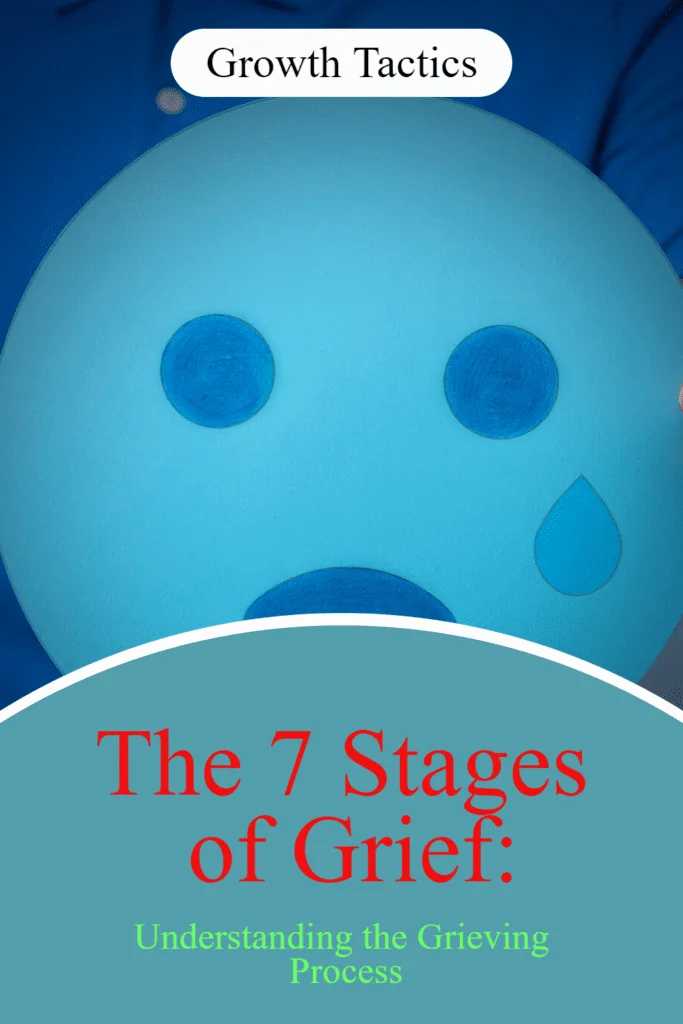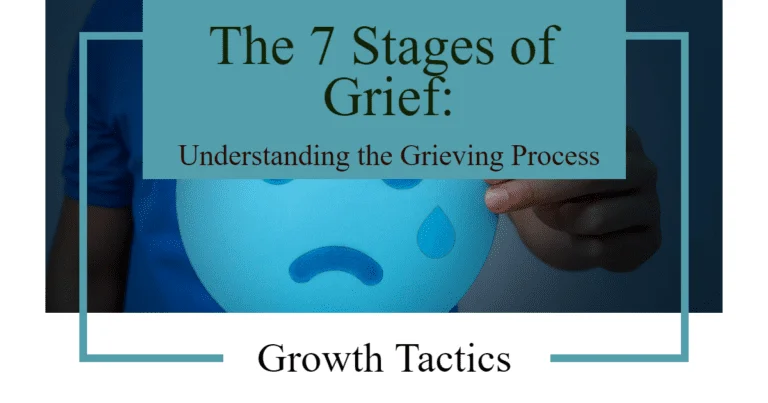Grief is an overwhelming emotion that everyone experiences at some point in their lives. The loss of a loved one, job, or any significant loss can trigger grief and pain. Elizabeth Kübler-Ross, a Swiss psychiatrist, developed the theory of grief, which outlines the 7 stages of grief that people experience. In this article, we will discuss the 7 stages of grief, how they affect individuals, and how to cope with loss.
Jump To Section
The 7 Stages of Grief
The seven stages of grief are:
- shock and denial
- pain and guilt
- anger and bargaining
- depression
- the upward turn
- reconstruction
- acceptance and hope
These stages do not necessarily happen in a linear fashion, and individuals may go through them in a different order or experience some stages more intensely than others.

Stage #1: Shock and Denial
The shock and denial stage is often the first response to a significant loss. It is a natural reaction to the sudden and unexpected news of a loved one’s death or any other significant loss. During this stage, the person may feel like they are in a fog, and nothing around them seems real. They may feel like they are watching a movie or a dream and refuse to believe that the loss has occurred.
The person may also experience physical symptoms, including a racing heart, shortness of breath, and nausea. These symptoms are the body’s way of responding to the overwhelming emotions that the person is experiencing. The person may also feel like they are in a state of shock, which can cause them to be unable to think or act clearly.
It is common for people to feel like they need to isolate themselves from others during this stage. They may feel like they cannot face the reality of the loss and may avoid talking about it or seeing anyone. This behavior is a coping mechanism that the person uses to protect themselves from the overwhelming emotions that they are experiencing.
The shock and denial stage can last for a few hours to a few weeks, depending on the person’s coping mechanisms and the severity of the loss. It is important to remember that this stage is a natural response to loss and that everyone experiences it differently. It is also crucial to seek support from family, friends, or a grief counselor during this stage to help the person cope with the loss and move on to the next stage of grief.

Stage #2: Pain and Guilt
The pain and guilt stage is the second stage of the grieving process. During this stage, the person begins to feel the full impact of the loss. The emotions that they experience during this stage can be overwhelming and intense, and they may feel like they are in a state of emotional pain.
The person may feel like they are carrying a heavy burden of guilt during this stage. They may think about all the things they could have done differently, leading to the loss. They may feel like they could have prevented the loss or that they are responsible for it. These feelings of guilt can be challenging to deal with and can lead to a sense of hopelessness and despair.
The person may also experience physical symptoms during this stage, including loss of appetite, difficulty sleeping, and fatigue. These symptoms are a natural response to the intense emotions that the person is experiencing.
It is important to remember that the feelings of guilt during this stage are a natural part of the grieving process. It is common for the person to feel like they could have done more to prevent the loss. However, it is essential to understand that the loss was out of their control, and they are not responsible for it.
The pain and guilt stage can last for several weeks to months, depending on the person’s coping mechanisms and the severity of the loss. It is important to seek support from family, friends, or a grief counselor during this stage to help the person cope with the loss and move on to the next stage of grief. Talking about the loss and expressing their emotions can help the person process their feelings of guilt and pain and start to heal from the loss.

Stage #3: Anger and Bargaining
The anger and bargaining stage is the third stage of the grieving process. During this stage, the person may begin to feel angry about the loss. They may feel like the loss was unfair and that they have been wronged. They may also feel like they have been abandoned or betrayed by the person who has passed away or the situation that caused the loss.
The person may also experience feelings of frustration during this stage. They may feel like they have no control over the situation and that they are powerless to change it. They may also feel like they have lost something that was important to them, and they are struggling to come to terms with it.
During this stage, the person may also begin to bargain with a higher power. They may try to make deals or promises in exchange for reversing the loss. They may also try to find meaning in the loss and search for reasons why it happened.
The anger and bargaining stage can be challenging to deal with, and the person may experience intense emotions during this stage. It is important to seek support from family, friends, or a grief counselor during this stage to help the person cope with the loss and move on to the next stage of grief.
The anger and bargaining stage can last for several weeks to months, depending on the person’s coping mechanisms and the severity of the loss.

Stage #4: Depression
The depression stage is the fourth stage of the grieving process. During this stage, the person may begin to feel a deep sense of sadness and hopelessness. They may feel like they will never recover from the loss and that life will never be the same again.
The person may also experience physical symptoms during this stage, including changes in appetite, sleep patterns, and energy levels. They may withdraw from social activities and isolate themselves from others. They may also lose interest in activities that they previously enjoyed.
The depression stage can be challenging to deal with, and the person may need support from family, friends, or a grief counselor during this stage. It is important to understand that the feelings of depression during this stage are a natural part of the grieving process.
The depression stage can last for several months to a year, depending on the person’s coping mechanisms and the severity of the loss. It is important to seek professional help if the person’s depression symptoms persist or worsen over time.
During this stage, the person may also begin to accept the reality of the loss and start to find ways to move forward. They may seek out support groups or counseling to help them cope with their feelings of sadness and despair.

Stage #5: The Upward Turn
The upward turn stage is the fifth stage of the grieving process. During this stage, the person may begin to experience a gradual improvement in their mood. They may start to feel like they can cope with the loss and begin to make plans for the future.
The person may also start to feel like they have more energy and motivation to engage in activities that they previously enjoyed. They may start to reconnect with friends and family and participate in social activities.
The upward turn stage can be a turning point in the grieving process, as the person begins to see a glimmer of hope for the future. They may start to accept the reality of the loss and start to find ways to move forward.
The upward turn stage can last for several months, depending on the person’s coping mechanisms and the severity of the loss. It is important to continue to seek support from family, friends, or a grief counselor during this stage, as the person may still experience setbacks and challenges.
During this stage, the person may also begin to reflect on the positive memories and experiences they had with the person they lost. They may start to find meaning in the loss and begin to appreciate the time they had with the person.

Stage #6: Reconstruction
The reconstruction stage is the sixth stage of the grieving process. During this stage, the person may begin to focus on rebuilding their life. They may start to feel hopeful about the future and begin to make plans for their life without the person they lost.
The person may also start to reflect on the positive aspects of their life and find ways to incorporate them into their future plans. They may start to set new goals and aspirations for themselves and find new hobbies or activities that bring them joy.
The reconstruction stage can be a challenging stage, as the person may still experience setbacks and challenges. However, the person may also start to feel a sense of empowerment as they take control of their life and begin to move forward.
This stage can last for several months to a year, depending on the person’s coping mechanisms and the severity of the loss. It is important to continue to seek support from family, friends, or a grief counselor during this stage, as the person may still experience moments of sadness or grief.
During this stage, the person may also start to find ways to honor the memory of the person they lost. They may participate in activities or events that remind them of the person or create a memorial in their honor.

Stage #7: Acceptance and Hope
The acceptance and hope stage is the final stage of the grieving process. During this stage, the person may begin to accept the reality of the loss and start to feel hopeful about the future. The person may start to feel like they have recovered from the loss, but they will always remember their loved one.
The person may also start to feel a sense of peace and closure about the loss. They may look back on their memories with their loved one with fondness and gratitude for the time they had together. The person may also start to feel a renewed sense of purpose and meaning in their life.
The acceptance and hope stage can be a significant turning point in the grieving process, as the person begins to see a future without the person they lost. They may start to feel grateful for the experiences they had with their loved one and start to focus on the positive aspects of their life.
This stage can last for several years, depending on the person’s coping mechanisms and the severity of the loss. It is important to continue to seek support from family, friends, or a grief counselor during this stage, as the person may still experience moments of sadness or grief.
During this stage, the person may also start to find ways to give back to others who are experiencing loss. They may participate in support groups or volunteer their time to help others who are grieving.

Tips for Progressing Through the 7 Stages of Grief
Grieving is a challenging process, and everyone experiences it differently. Here are some tips to help you move through each stage of grief:
Stage #1: Shock and Denial
- Acknowledge Your Feelings: Allow yourself to feel the full range of emotions without judgment.
- Seek Support: Surround yourself with family and friends who can offer comfort and understanding.
- Maintain a Routine: Stick to daily routines to provide a sense of normalcy and stability.
Stage #2: Pain and Guilt
- Express Your Emotions: Talk about your feelings with trusted individuals or write them down in a journal.
- Forgive Yourself: Understand that feelings of guilt are normal but remind yourself that the loss was not your fault.
- Physical Care: Pay attention to your physical health by eating well, getting enough rest, and engaging in gentle exercise.
Stage #3: Anger and Bargaining
- Healthy Outlets for Anger: Engage in physical activities or creative outlets to channel your anger.
- Talk It Out: Share your thoughts with a friend, family member, or therapist to help process your anger.
- Reflect and Understand: Realize that bargaining is a natural part of attempting to make sense of the loss.
Stage #4: Depression
- Seek Professional Help: If depression becomes overwhelming, consider speaking to a mental health professional.
- Stay Connected: Make an effort to stay in touch with loved ones, even if it’s just through small interactions.
- Engage in Self-Care: Participate in activities that bring comfort, such as reading, taking a bath, or spending time in nature.
Stage #5: The Upward Turn
- Focus on Positives: Start to reflect on positive memories and the good times shared with the person you lost.
- Set Small Goals: Focus on achieving small, manageable goals to rebuild confidence and a sense of purpose.
- Celebrate Progress: Recognize and celebrate small milestones in your healing journey.
Stage #6: Reconstruction
- Plan for the Future: Begin setting long-term goals and making plans for a future without the person you lost.
- Find New Interests: Explore new hobbies or activities that bring joy and fulfillment.
- Rebuild Relationships: Strengthen connections with others and build a support network.
Stage #7: Acceptance and Hope
- Embrace the New Normal: Accept that life will be different and start to integrate the loss into your life story.
- Find Meaning: Seek out activities or causes that honor the memory of your loved one.
- Stay Optimistic: Cultivate a sense of hope and look forward to new experiences and opportunities.
Grieving is a personal journey, and there is no right or wrong way to go through it. These tips are meant to provide guidance and support as you navigate through the different stages of grief, ultimately helping you find a sense of peace and acceptance.
Coping with Loss
Dealing with loss is a challenging stage in life, and it is essential to have a support system. It is also crucial to acknowledge and identify the various stages of grief to help individuals understand their emotions. Seeking the help of a grief counselor or a health professional can also be beneficial in dealing with prolonged grief disorder.
Wrapping It Up
In conclusion, grief is a natural response to loss, and everyone experiences grief differently. Identifying the various stages of grief can help individuals understand their emotions and help them recover from grief. It is essential to remember that there is no right or wrong way to grieve and that seeking help is a sign of strength.
Did you find this article on the 7 stages of grief useful? don’t forget to share and subscribe for more Growth Tactics.


